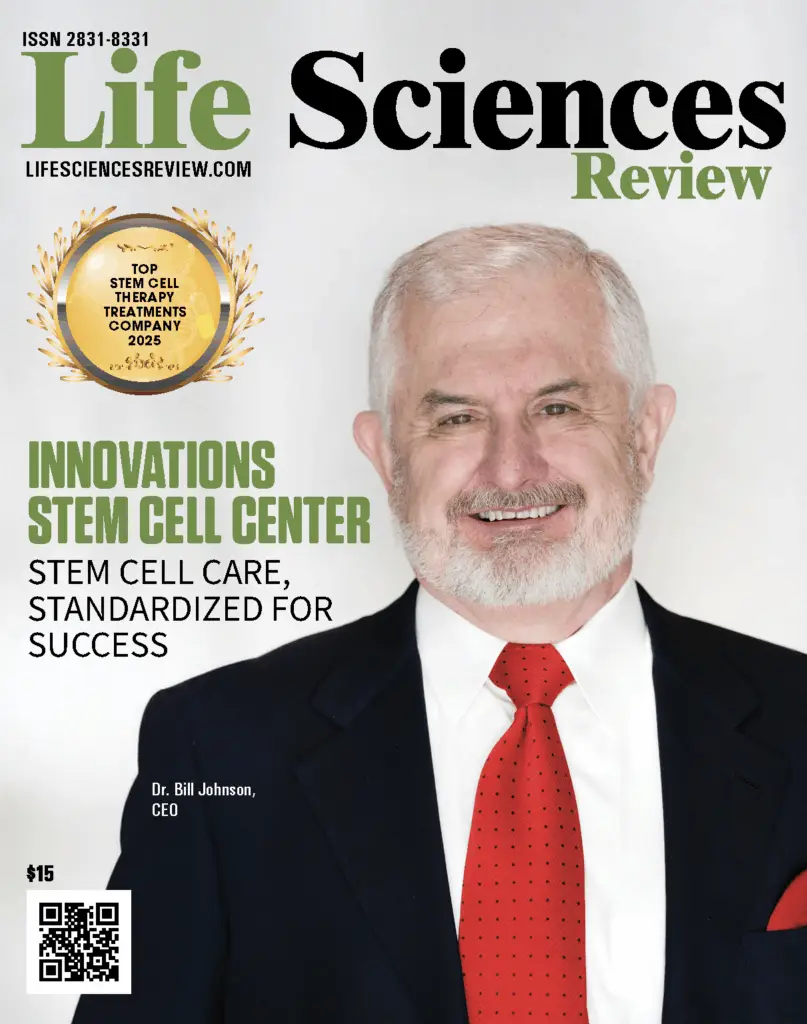Rotator cuff tears and shoulder arthritis cause chronic pain that limits daily activities and quality of life. While surgery has been the traditional solution, autologous adipose-derived stem cells (ADSCs) offer a proven regenerative alternative. Clinical studies demonstrate that stem cell therapy derived from a patient’s own fat tissue can repair damaged tendons, reduce inflammation, and restore shoulder function—without surgery.
At Innovations Stem Cell Center in Dallas, we’ve used this FDA-compliant procedure for over 12 years with consistently positive outcomes. This article examines the clinical evidence supporting stem cell therapy for rotator cuff tears and shoulder arthritis.
Understanding Autologous Adipose-Derived Stem Cells
ADSCs are mesenchymal stem cells extracted from a patient’s adipose (fat) tissue. These cells have the potential to differentiate into various cell types, including bone, cartilage, and muscle, making them ideal candidates for regenerative therapies. The term “autologous” indicates that the stem cells are derived from the same individual, minimizing the risk of immune rejection and ethical concerns associated with other stem cell sources.
Advantages of Using Fat Tissue as a Stem Cell Source
Fat tissue is an abundant and accessible source of stem cells. Harvesting ADSCs involves a minimally invasive procedure called liposuction, which is generally well-tolerated and can be performed under local anesthesia. This contrasts with bone marrow-derived stem cells, which require more invasive extraction methods. The ease of harvesting and the high yield of stem cells from adipose tissue make it a practical choice for therapeutic applications.link.springer.com+1mdpi.com+1
Safety and Efficacy of ADSCs in Shoulder Conditions
Several studies have investigated the safety and efficacy of ADSCs in treating shoulder ailments:
- Partial-Thickness Rotator Cuff Tears: A randomized controlled trial assessed the use of uncultured, unmodified, autologous adipose-derived regenerative cells (UA-ADRCs) in patients with symptomatic partial-thickness rotator cuff tears. The study demonstrated that UA-ADRC treatment was safe and more effective than corticosteroid injections, leading to significant improvements in shoulder function and pain relief over a long-term follow-up period. link.springer.com+4josr-online.biomedcentral.com+4medrxiv.org+4
- Rotator Cuff Disease: A first-in-human trial evaluated the intratendinous injection of autologous adipose tissue-derived mesenchymal stem cells in patients with rotator cuff disease. The results indicated that the procedure was feasible, safe, and effective, with evidence of tendon regeneration without the need for surgery. prolotherapy.com+2stemcellsjournals.onlinelibrary.wiley.com+2stemcellsportal.com+2
- Acromioclavicular Joint Osteoarthritis: A case report explored the effect of autologous adipose-derived mesenchymal stem cell therapy in treating acromioclavicular joint osteoarthritis. The patient experienced pain relief and functional improvement, with imaging showing structural enhancements, such as reduced subchondral edema and synovitis, at a 12-month follow-up. casereports.bmj.com+1casereports.bmj.com+1
- Glenohumeral Osteoarthritis: A retrospective study reported the safety and clinical outcomes of intra-articular injection of adipose-derived mesenchymal stem cells in patients with glenohumeral osteoarthritis over a 36-month period. The findings suggested that this regenerative medicine approach was safe and associated with improved shoulder function and pain relief. mdpi.com
How do Stem Cells from Fat Work?
ADSCs contribute to tissue repair through several mechanisms:shoulderdoc.co.uk+11medrxiv.org+11josr-online.biomedcentral.com+11
- Differentiation: They can transform into various cell types, aiding in the regeneration of damaged tissues such as tendons and cartilage.
- Paracrine Effects: ADSCs secrete bioactive molecules that modulate the local environment, reducing inflammation and promoting healing.medrxiv.org+3mdpi.com+3josr-online.biomedcentral.com+3
- Immunomodulation: They can modulate immune responses, potentially decreasing chronic inflammation associated with conditions like arthritis.
Discover how we use stem cell therapy for shoulder conditions.
Procedure: Harvesting and Processing
The process of utilizing ADSCs for shoulder conditions involves several steps:jbiomedsci.biomedcentral.com+5trials.arthritis.org+5stemcellsportal.com+5
- Harvesting: Adipose tissue is obtained through a minimally invasive liposuction procedure, typically from areas like the abdomen or thighs.
- Processing: The extracted fat is processed to isolate the stromal vascular fraction (SVF), which contains the ADSCs. This can be achieved using point-of-care devices that allow for immediate processing in a clinical setting.jbiomedsci.biomedcentral.com
- Injection: The processed ADSCs are injected into the affected shoulder area under ultrasound guidance to ensure accurate placement.painnewsnetwork.org
One of the significant advantages of this approach is that it eliminates the need for cell transportation or extensive laboratory manipulation, as the entire process can be completed within the same clinical visit.
Clinical Evidence Supporting ADSC Therapy
Several studies have highlighted the potential of ADSCs in treating shoulder conditions:nature.com+7stemcellsjournals.onlinelibrary.wiley.com+7stemcellsportal.com+7
- Rotator Cuff Tears: A clinical trial investigated the effects of intratendinous injection of autologous adipose tissue-derived mesenchymal stem cells in patients with rotator cuff disease. The study demonstrated that the procedure was feasible, safe, and effective, showing evidence of tendon regeneration without the need for surgery. trials.arthritis.org+4stemcellsjournals.onlinelibrary.wiley.com+4stemcellsportal.com+4
- Acromioclavicular Joint Osteoarthritis: A case report evaluated the efficacy of mesenchymal stem cell therapy in treating acromioclavicular joint osteoarthritis. The patient reported pain relief and functional improvement, with imaging at 12 months showing structural enhancements, including reduced subchondral edema and synovitis. casereports.bmj.com
- Glenohumeral Osteoarthritis: A retrospective study assessed the long-term outcomes of intra-articular injection of adipose-derived mesenchymal stem cells in patients with glenohumeral osteoarthritis. The findings indicated that this regenerative medicine approach was safe and associated with improved shoulder function and pain relief over a 36-month period. mdpi.com
Safety Profile
The use of autologous ADSCs has been associated with a favorable safety profile:
- Minimal Adverse Events: Studies have reported few adverse events, with most being mild and transient, such as temporary soreness at the injection site.
- Some patients: Experience minor swelling and bruising at the harvest site. Rare complications can occur from the injection procedure (such as a joint injection).
Experience Stem Cell Therapy for Shoulder Pain in Dallas
If you’re suffering from rotator cuff tears or shoulder arthritis, stem cell therapy may help you avoid surgery and achieve lasting pain relief. At Innovations Stem Cell Center, we harvest only 50cc of fat tissue (about 3 tablespoons) in a quick 3-minute procedure, then process your cells to yield an average of 100 million stem cells.
Schedule a free consultation to learn if regenerative therapy is right for your shoulder condition.




